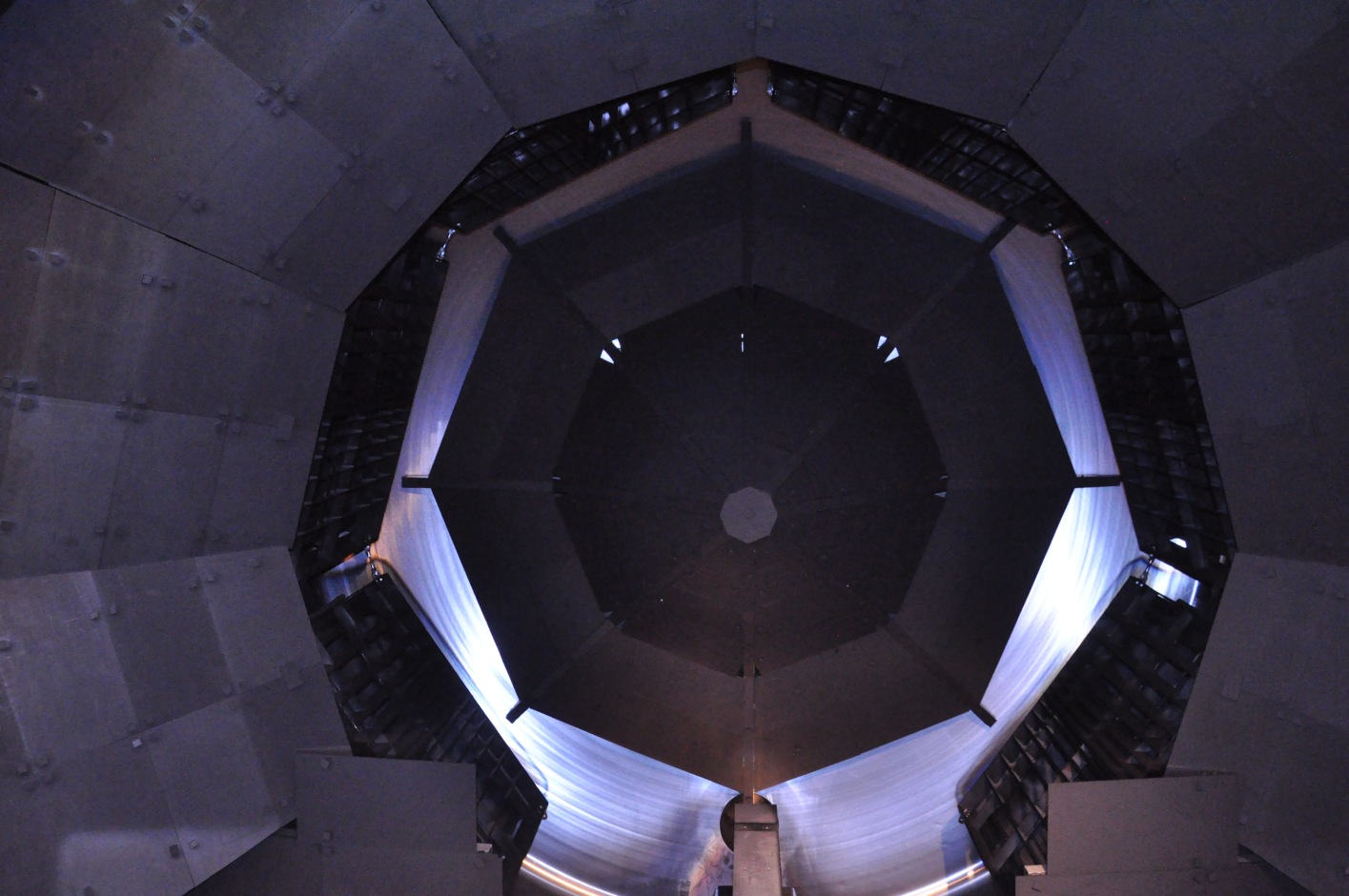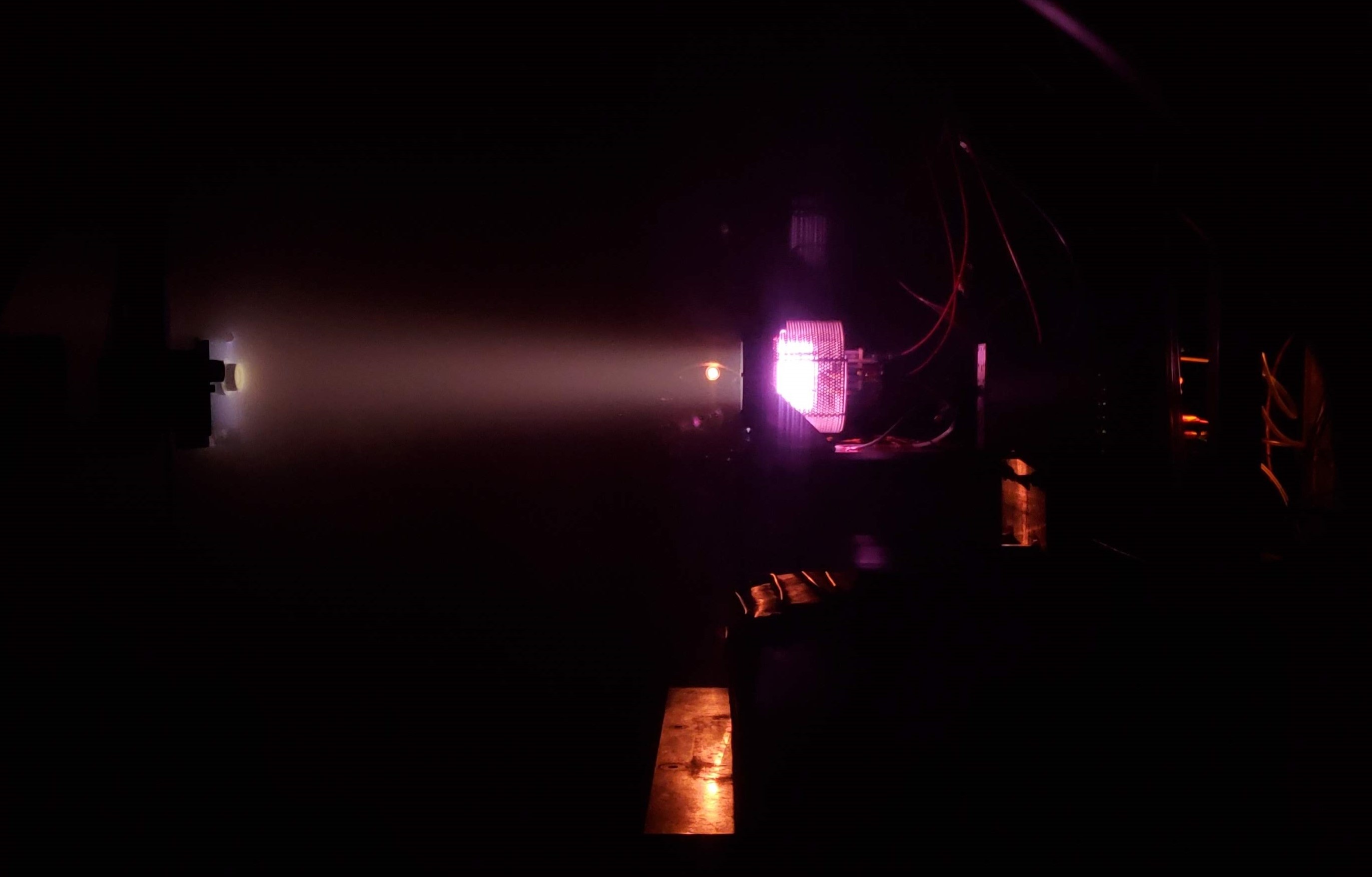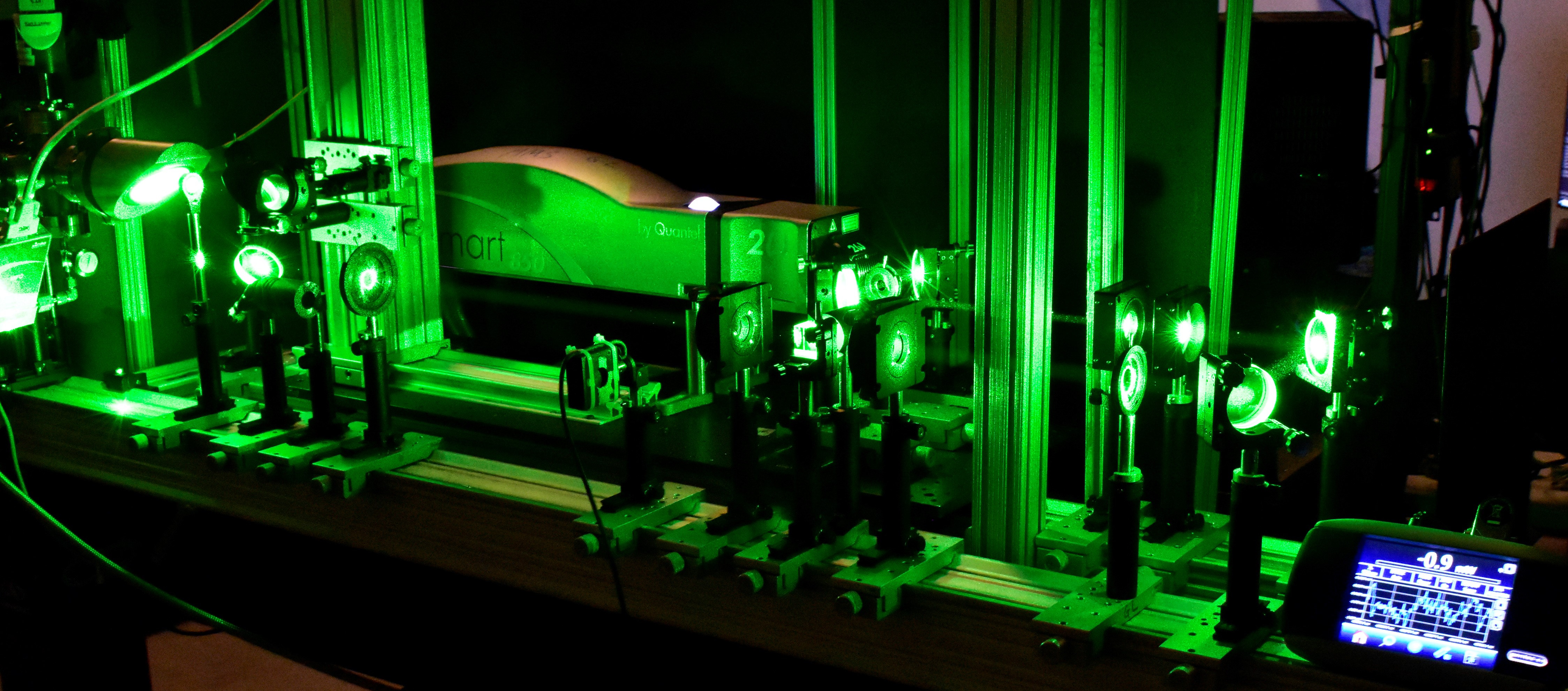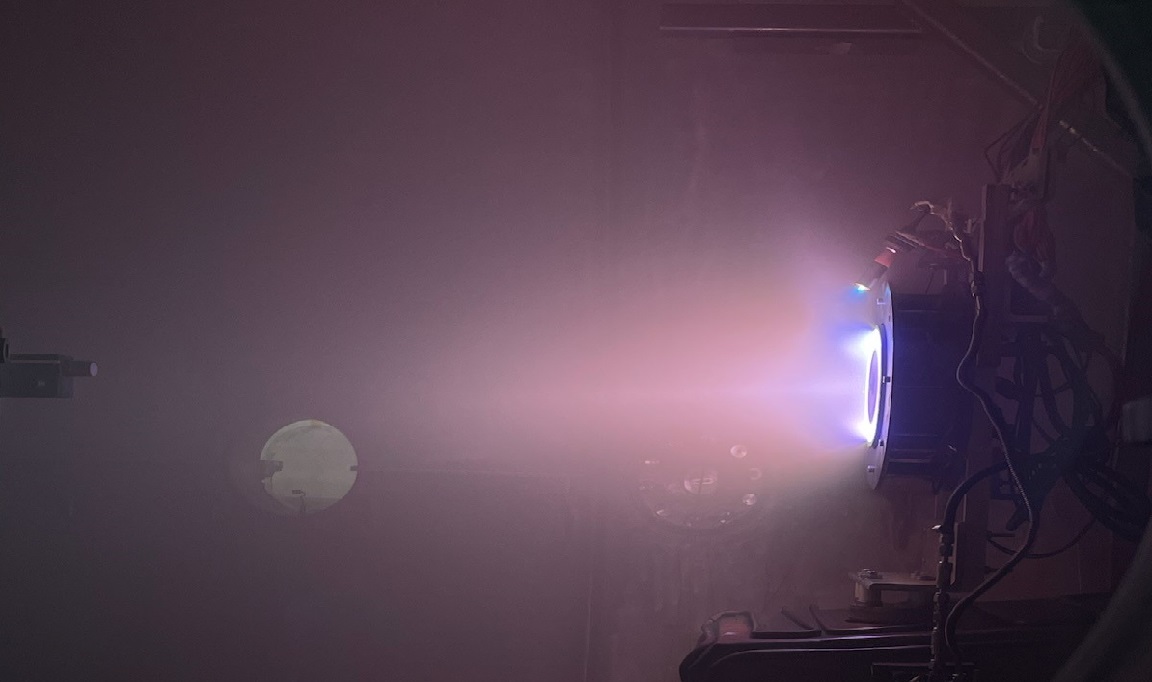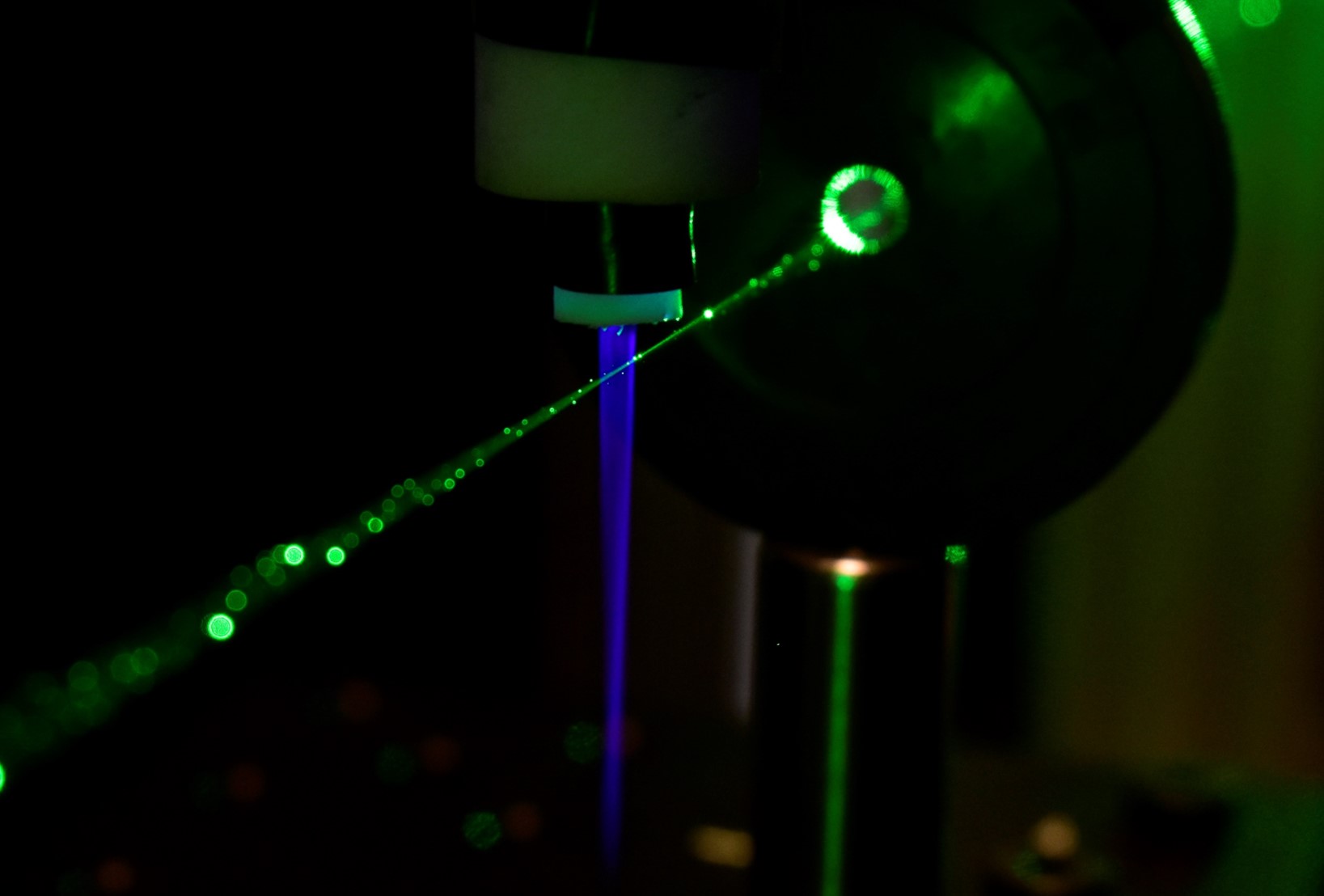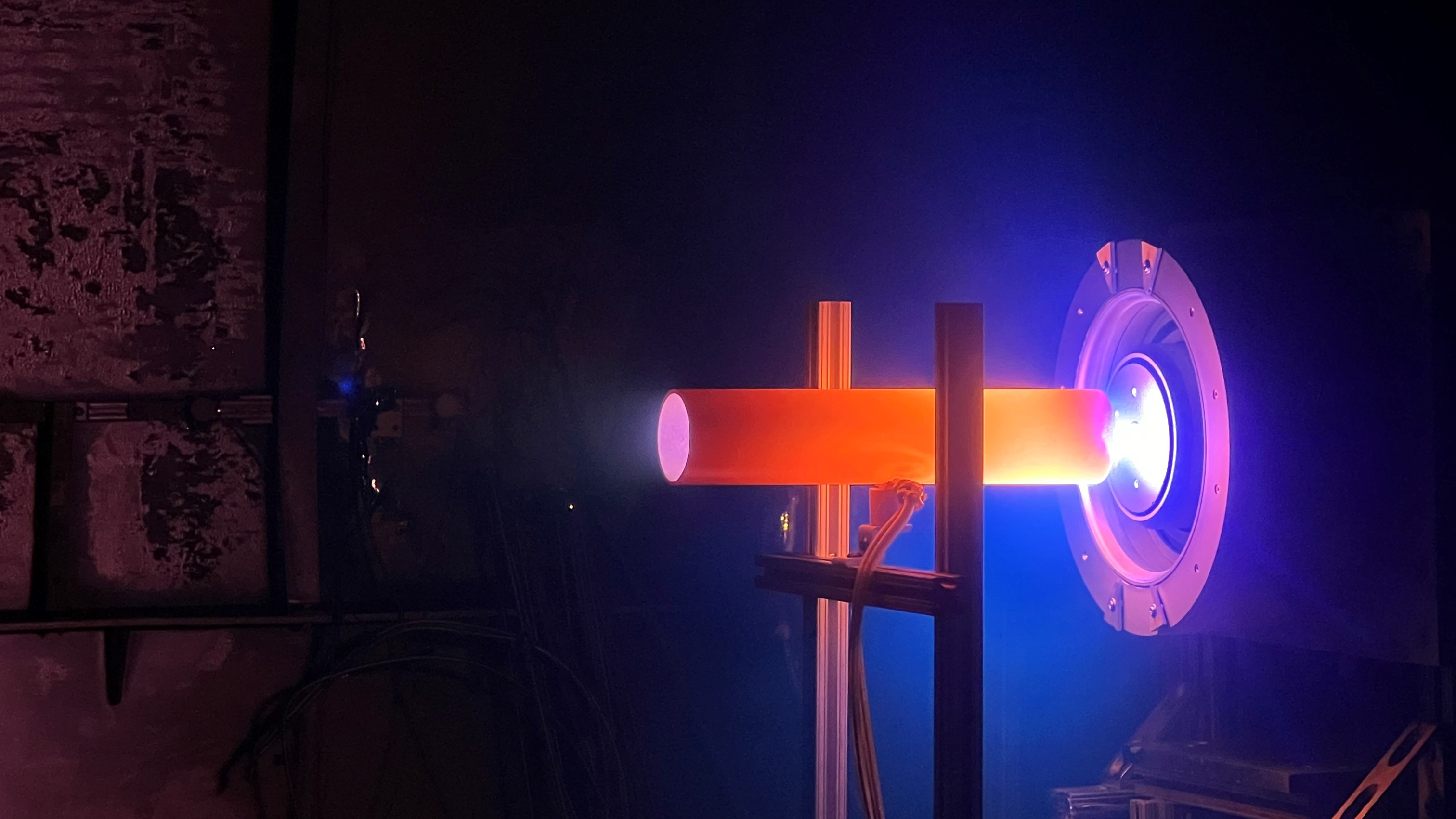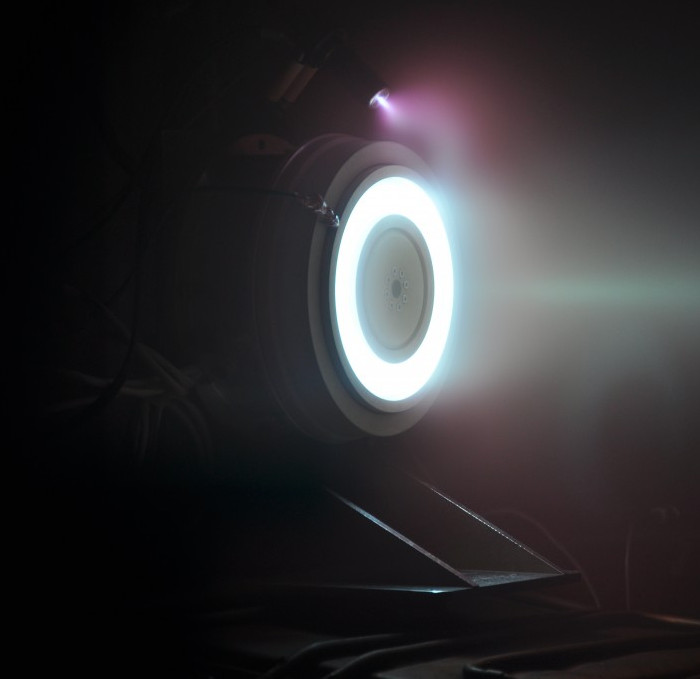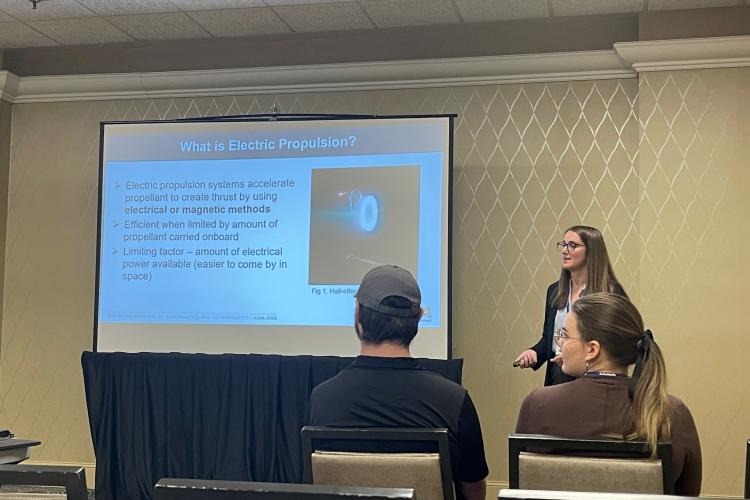In March, undergraduate research student Kendal Seedfried delivered a presentation at the AIAA Region II Student Conference.
About HPEPL:
The High-Power Electric Propulsion Laboratory (HPEPL) at the Georgia Institute of Technology Department of Aerospace Engineering was founded in 2005 under the direction of Prof. Mitchell Walker. Our primary interests lie in the characterization of electric propulsion (EP) devices, plasma physics, non-invasive plasma diagnostics, and vacuum test facility effects on ther performance of EP devices.
Our Mission:
To advance our understanding of plasma physics and further the technology of electric propulsion devices for future space applications
Our Goals:
1) To increase the performance and efficiency of high-power electric propulsion devices2) To identify and understand spacecraft integration issues that may prevent widespread use of EP systems on spacecraft
3) To understand the life-limiting factors of EP devices
4) To identify non-propulsion applications of EP systems (e.g., space-plasma simulation and re-entry flow simulation)

